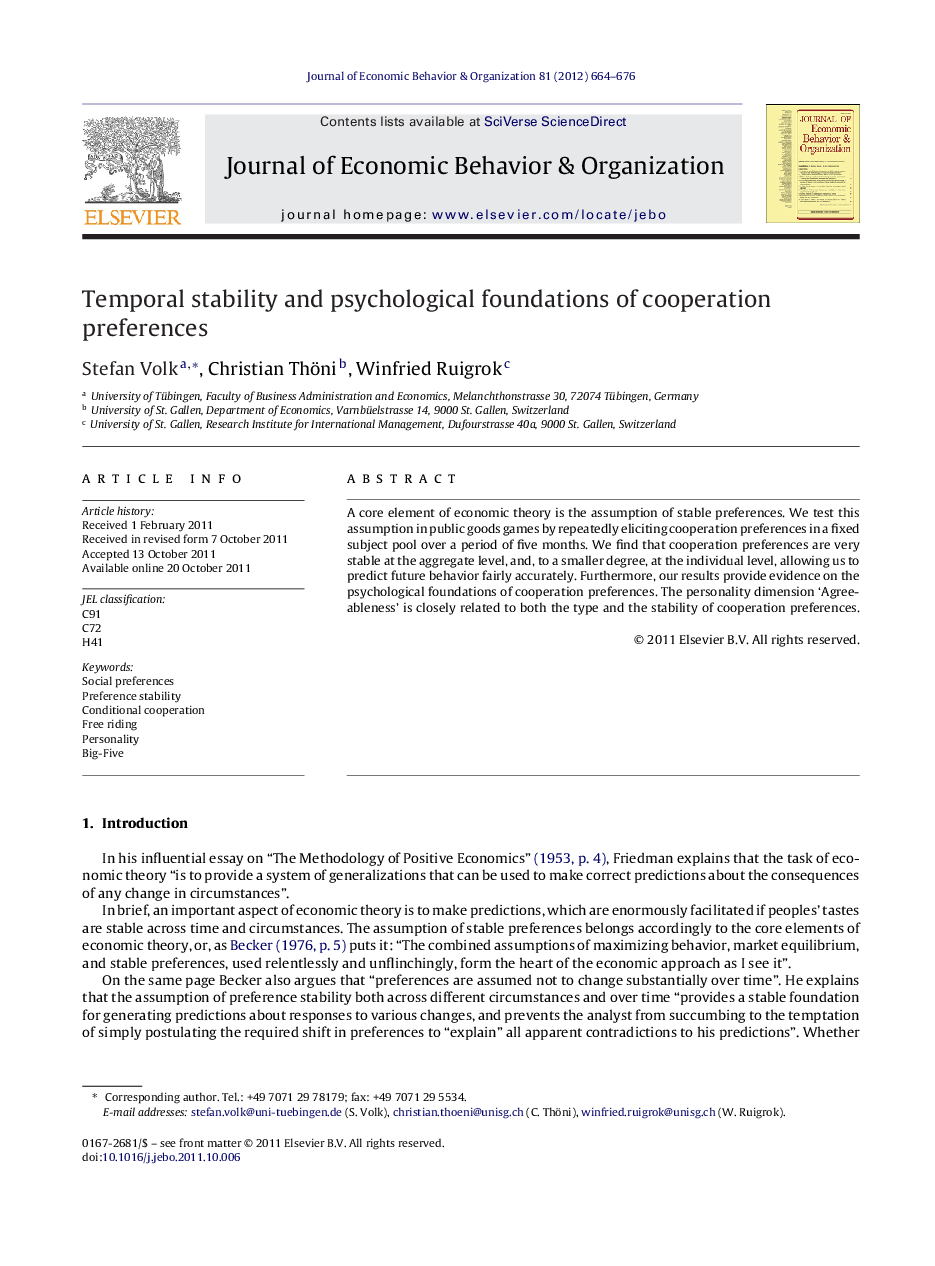| Article ID | Journal | Published Year | Pages | File Type |
|---|---|---|---|---|
| 883771 | Journal of Economic Behavior & Organization | 2012 | 13 Pages |
A core element of economic theory is the assumption of stable preferences. We test this assumption in public goods games by repeatedly eliciting cooperation preferences in a fixed subject pool over a period of five months. We find that cooperation preferences are very stable at the aggregate level, and, to a smaller degree, at the individual level, allowing us to predict future behavior fairly accurately. Furthermore, our results provide evidence on the psychological foundations of cooperation preferences. The personality dimension ‘Agreeableness’ is closely related to both the type and the stability of cooperation preferences.
► We test the temporal stability and psychological foundations of cooperation preferences. ► We conduct three public goods games over a period of five months in a fixed subject pool. ► Preferences are very stable at the aggregate level. ► Individual preferences are sufficiently stable to predict future behavior fairly accurately. ► The personality dimension Agreeableness is closely related to preference stability.
